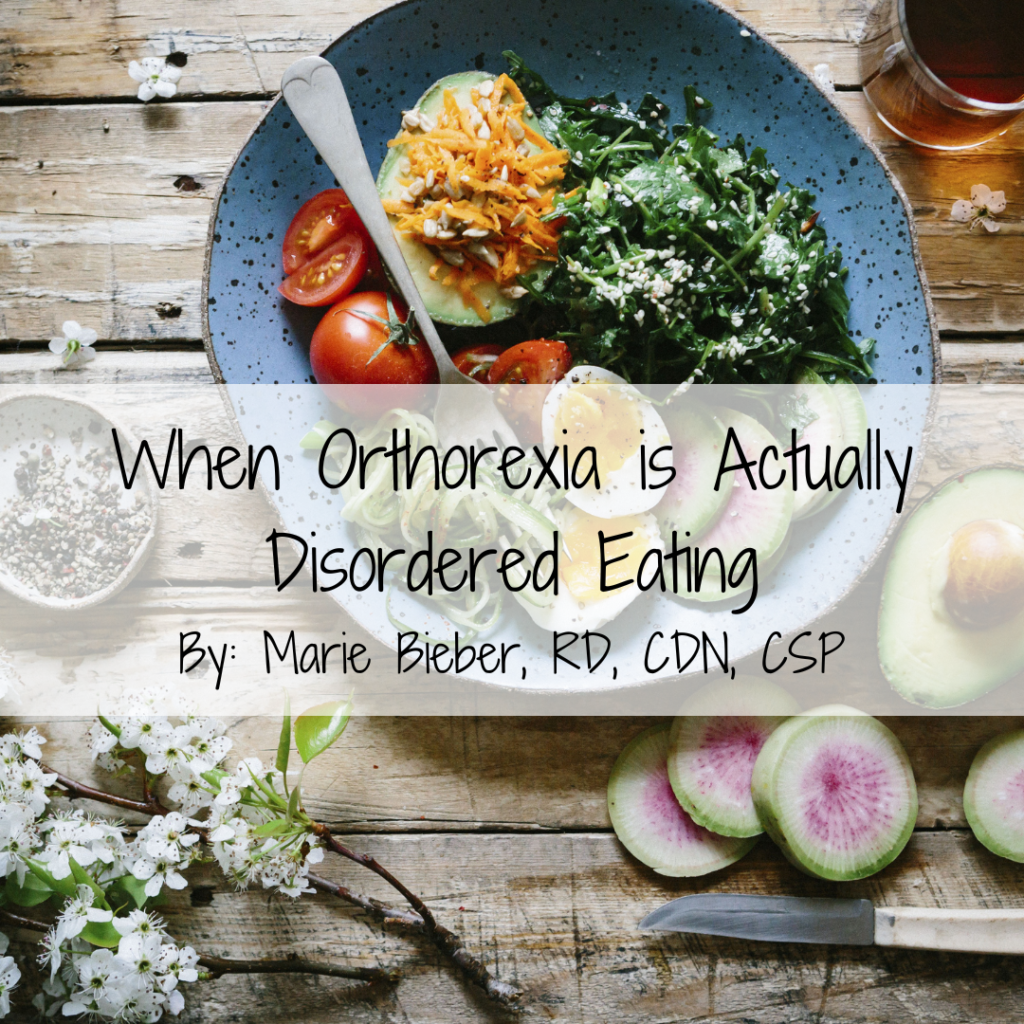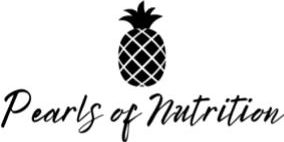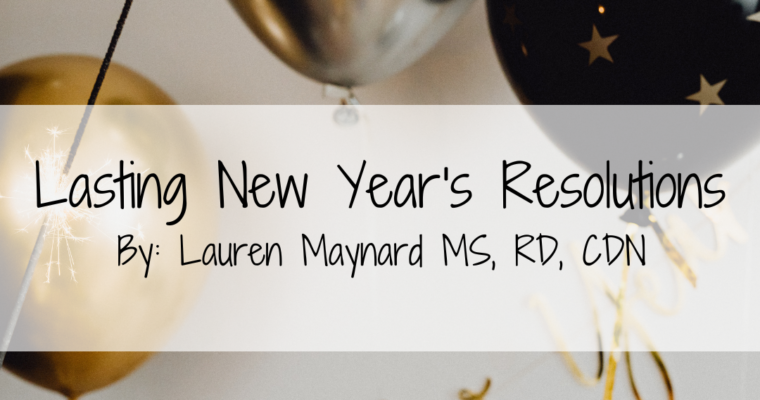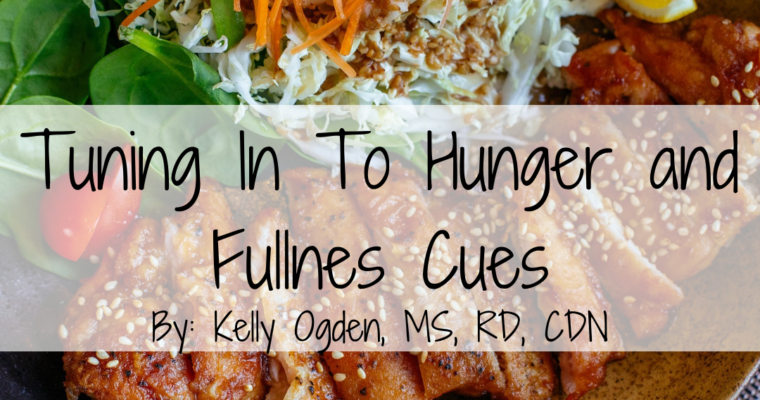
As a Registered Dietitians working with individuals suffering from Eating Disorders and disordered eating, we frequently see people struggling with what many consider “orthorexia,” an obsession with eating foods one considers healthy. This drive for healthy or “clean” eating can become burdensome. It can impact one’s ability to interact socially, eat at regular intervals, or find food while traveling. It seems backwards, but the drive to be healthy can go so far that it actually makes one more physically and psychologically unhealthy.
Orthorexia is not a recognized clinical diagnosis. The Diagnostic and Statistical Manual of Mental Disorders (DSM-5) identifies a number of feeding and eating disorders including Avoidant-Restrictive Food Intake Disorder, Anorexia Nervosa, Bulimia Nervosa, Binge-Eating Disorder, and Other Specified Feeding or Eating Disorders, but not orthorexia.
Many of the behaviors seen in individuals struggling with “orthorexia” may actually fit the clinical diagnosis for other eating disorders. I recently read an article in which the writer admitted to struggling with orthorexia though the behaviors she engaged in indicated she was suffering from not just orthorexia, but likely a fully diagnosable eating disorder.
If you find yourself obsessively counting calories, (or fat, sugar, cholesterol, etc.), weighing yourself multiple times per day, spending hours creating the “perfect” meal plan, avoiding social situations in which food may be involved, fearing food or judgment of what you are eating, burning more calories than you are taking in daily, or fearing food origin to the point of refusal, you may need to seek professional help. It’s one thing to care about what you eat, it’s another to live a life of constant food anxiety and judging yourself based on what’s on your plate and the number on the scale.
Now don’t get me wrong, the goal here isn’t to throw caution to the wind and eat whatever, whenever. We still need to fuel our body with the proper mix of macro and micronutrients to live healthful lives. However, we don’t need to eat perfectly in order to have good health and wellbeing. Should you do your best to make home cooked meals from whole foods? Absolutely. But the reality is even cupcakes provide your body with nutrition- carbohydrates, thiamine, selenium, folate, etc.
So if you are holding on to a perfect ideal when it comes to food you should ask yourself a few questions. How would I feel if I couldn’t eat what I planned for the day? What would I do if a friend brought me cookies? How would I handle it if I was really hungry but none of the food available felt safe? If any of these situations make you feel uncomfortable, stressed, or anxious or would lead to you underfueling yourself- you should consider meeting with a Registered Dietitian to work through that food anxiety and ensure you are eating with adequate balance and minimal stress.
Rather than perfect eating, the goal should be to focus on listening to your body, nourishing yourself and your lifestyle with food, and having a balance of nutrients as well as fun foods. Food is fuel, sure, but it is also a large part of family, culture, and even entertainment. Food allows us to connect with our family, friends, culture, and society. An eating disorder loves disconnection. If you are someone who has considered yourself orthorexic I encourage you to reflect on if this style of eating has led to more or less connection in your life. For many, this rigid way of eating leads to turning down invitations to social gatherings or family events, it can lead to avoiding outings where food may become involved. This isolation fuels further disordered behaviors around food because there is never anyone to check the behavior and you’re often alone with your disordered eating thoughts.
While many see eating disorders as a case of vanity taken to the extreme, that just isn’t the case. Like addiction, an eating disorder is a coping mechanism for other stressors that are occurring in life. Anxiety, fear, and shame may be expressed surrounding food, body image, and weight, but it is likely these emotions are just being projected from something else. This control over food can help that individual to feel more in control of their life and emotions at first though over the long term progresses to someone feeling out of control anytime they are presented with a less than ideal (in their mind) food situation.
There is no shame in asking for help. An estimated 30 million people in the US are suffering from an eating disorder. This is a disease which, contrary to popular belief, crosses all ages, genders, and races. Eating disorders don’t discriminate. Seek out a Registered Dietitian in your area that focuses on the treatment of Eating Disorders for a full assessment and assistance in connecting with treatment resources in your area.
Food should provide nourishment, connection and pleasure, not fear, my friends.


